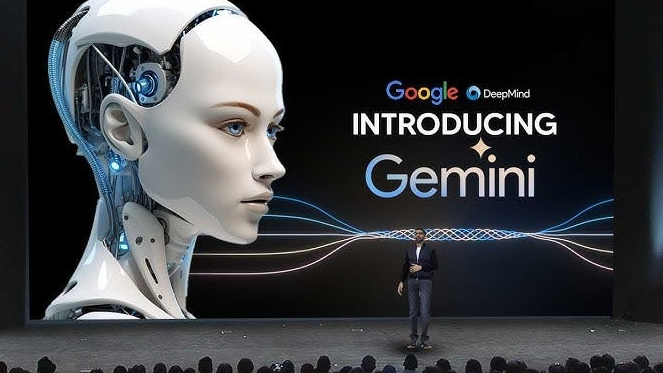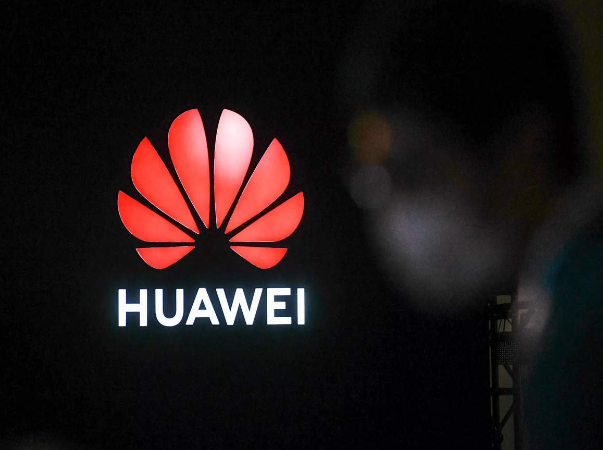Morrissey Technology – Recently, Netflix released a new, futuristic film based on the story of artificial intelligence (AI) technology, entitled “Atlas”. This film shows the dark side of AI and also the possibility of collaboration and harmonization between humans and AI, through a technology called “neurolink”.
Atlas, a fictional character in the film, represents the current skepticism of much of humanity towards the development of artificial intelligence (AI) and its impact on real life and the future of humanity. Even though the technology in the film is actually all around us now, be it AI or neurolink, whose name and working principle are similar to the neuralink technology developed by Elon Musk.
Full name Elon Revee Musk, a well-known businessman and investor in the digital sector, born in 1971, recently received strong criticism from one of the expert scientists known as the GodFather AI, Yann Andree LeCun. According to Yann, as written on his X / Twitter account, Elon is too based on conspiracy theories and “exaggerates” when talking about AI development. According to Yann, the development of AI technology is (should) be based on research and scientific studies FOR4D.
Elon, via his X/Twitter account, has thrown back criticism by asking what contribution scientists like Yann have made to the development of AI today. Moreover, according to Elon, Yann is “just” an employee of a large corporation who must be ready to take orders. In fact, Yann, who is the Chief AI Scientist at Meta, is also a well-known Professor of Mathematics with dozens of scientific papers/technical papers that he has published, including about the development of AI technology which is now widely carried out in the world.
This debate is interesting, valid and relevant, illustrating how the point of view of a businessman and investor like Elon collides with that of a scientist and researcher like Yann. AI technology must be fully implemented by various parties, from both positive and negative sides in its development and use. Even today’s AI technology itself, because it is developing quickly and almost independently, is projected to one day be able to surpass human intelligence and control. How far have we prepared FOR4D.
AI and the Digital Divide
In the AI for Good Global Summit Forum which was held in Geneva at the end of May 2024, it was stated that humanity today will not be able to avoid (the development of) AI technology. However, behind the discourse about all the goodness brought by this technology, all of us, also globally, continue to be haunted by risks and negative impacts that cannot yet be clearly measured.
Negotiations and debates are still hotly underway in countries in the Global North and Global South. One of the points is about how to develop AI ethically, of course by understanding the different conditions and ecosystems in each country.
Within the country itself, for example, amidst the big discourse on the development of artificial intelligence (AI) and the ethics of its use, Indonesia is still faced with conditions of digital infrastructure/access gaps, unequal digital literacy skills in each region and the shadow of worry about job losses due to replacement. by AI technology.
This can also be seen in the reality of urban and rural disparities. Urban areas are considered to have more opportunities to be able to keep up with AI developments better than rural areas in Indonesia.
Of course, one of the reasons is because the forums available to discuss AI issues take place more in urban areas than rural areas, as well as the intensive use of AI in various health, financial and educational services in a number of big cities.
AI and Cybercrime
AI is indeed able to present a new style of learning and working that is more effective and productive with superior results for its users in creative and positive ways. But on the other hand, AI can also “facilitate” similar things for criminals.
Returning to the film “Atlas” which was mentioned at the beginning of this article, there is a figure called “Harlan”, an AI technology with terrorist abilities and attitudes that threaten human security. It may still seem futuristic, but crimes based on AI technology are already widespread around us.
In mid-2023, for example, WormGPT, an AI-based malware, will be able to generate and spread malicious code automatically. This certainly shocked the cybersecurity world and served as a reminder that AI technology has the potential to be misused. At least, here are some crimes that use AI technology, as quoted from Technology Review.
1. Spread of Phishing
Phishing is the biggest cyber crime that is “assisted” by AI. Phishing criminals are now using AI technology to further perfect their criminal tricks. Spam generating services, such as GoMail Pro, for example, have integrated ChatGPT into their services to make it easier for criminals to interpret their fraud and send it to victims.
2. Deepfake Fraud
AI technology now allows cybercriminals to fabricate sounds, images and videos so that they appear very similar to the real thing. In an MIT Technology review of AI-based cybercrime, it was found that many platforms openly sell deepfake services at a relatively cheap price of around 160,000 per image. In Hong Kong, a finance worker at a multinational company was tricked into paying US$25 million (Rp. 392.97 billion) to a fraudster who used deepfake technology by posing as the company’s chief financial officer.
3. Jailbreak Service
This service allows criminals to manipulate AI systems. For example, writing code to create ransomware. Some AI companies, such as OpenAI and Google, have routinely installed security systems to prevent this from happening.
4. Doxxing and Spying (without rights)
AI is not only used for phishing, but is also a tool that is widely used for doxxing, for example to identify someone’s personal information online. This is because the AI system is trained to retrieve data quickly from the internet, including personal data. Several researchers found that some AI technologies are capable of analyzing sensitive information such as ethnicity, a person’s location and a person’s occupation.
5. Hoax / Disinformation
AI can be used to produce highly realistic and convincing propaganda and disinformation content. This content can then be shared on social media and other online platforms to manipulate public opinion, spread hatred, or disrupt the democratic process.
6. Harassment Behavior
AI can be used to harass individuals online. AI can be used to analyze social media and other online activity to gather information about victims, and then use that information to send harassing or threatening messages. AI is also used to manipulate photos and videos of victims.
AI and Human Kindness
Not only is it a source of fear, AI is also being developed for the good of humanity. In the film “Atlas”, it is told that ultimately AI technology was used for good for the good of humanity. Apart from AI in the film Atlas, the development of AI-based technology for good is currently also being carried out in the fields of agriculture, fisheries, health, education and AI-based security.
For example, the development of AI to detect breast cancer by Google Health in collaboration with several hospitals in the UK. In Indonesia, BRIN is also developing innovative AI-based technology, including: SADEWA for weather prediction, SEMAR for fisheries and extreme weather at sea, SRIKANDI for air quality related to the health and environmental sectors, SANTANU for rain monitoring, JATAYU for aviation weather, SRIRAMA for climate change, KAMAJAYA FOR4D for the start of the season related to agriculture, INDRA for water resources and GATOTKACA for monitoring humidity or water vapor over Indonesian territory.
So, if we return to the excerpt from the debate between Elon and Yann above, it can be said that AI technology is not something that can or should be seen from just one point of view. There is a need to involve multiple stakeholders, namely government, academics, civil society, the private sector and the technical community, to ensure that the development and use of AI technology can be carried out ethically, safely and responsibly.
Each stakeholder will have varying points of view and may differ in negotiating the positives vs. negatives of AI technology. However, if we believe that differences in negotiations are a blessing, then AI will certainly be able to bring full benefits.
https://www.impulseintl.com/-/for4d/












